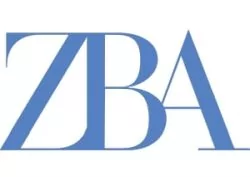Introduction:
One of the long-standing issues concerns the power of courts to modify an award in proceedings under Section 34 of the Arbitration and Conciliation Act, 1996 ("Arbitration Act") dealing with applications for setting aside an arbitral award. On 20 February 2024, a three-judge bench of the Supreme Court1, referred the issue of whether the Court's powers under Sections 34 of the Arbitration Act extend to modifying an arbitral award to the larger bench.
The reference to a larger bench was required because of multiple conflicting verdicts of the coordinated benches of the Court. For instance, a 2-judge bench in SV Samudaram2 ruled that modifying an arbitral award amounts to "crossing the Lakshman Rekha" and thus the courts should not modify the award. But the 2-judge bench in Vedanta Limited permitted modification to an arbitral award.
Supreme Court deciphering the legislative intent
In NHAI vs. Hakeem & Anr.3 ("Hakeem"), the Supreme Court ruled that if deficiencies or grounds under Section 34 were identified, setting aside of such defective arbitral award was the only available course and the courts lacked the power to modify the award. This position is supported by the absence of any specific provision in the Arbitration Act allowing such modifications, unlike the erstwhile Arbitration Act of 1940 that permitted modifications to the arbitral award.
The court in Hakeem also noted that jurisdictions like England, USA, Singapore and Australia have express provisions that permit modification of the award – Section 34 of the Arbitration Act has no such express provision and thus the mandate of the law is clear.
Hakeem judgement, relied on by the Supreme Court4 subsequently, is aligned with the primary objective which the legislature sought to meet i.e. minimal judicial interference. Therefore, the correct course of action available to the Indian courts under the current arbitration law is to set aside the award, wholly or partly. The Delhi High, in Trichy Thanjavur5, has recently reiterated that there is no prohibition in setting aside part of an award which is severable and does not impact other components of the award and in court's view, this does not run contrary to the position of the law laid in the Hakeem judgement.
While Hakeem appears to have settled the issue but the Court has invoked its "extraordinary" powers under Article 142 of the Constitution of India to permit modification of an award. This covers a range of issues such as such as adjusting the interest component67 or by consent of the parties8. The question therefore arises that whether Hakeem judgment should be revisited?
Existing safeguard:
Section 33 of the Arbitration Act empowers the arbitrator to rectify any computational, clerical, typographical, or other errors in the award either at its own discretion or on the request of any party involved. The Supreme Court9 has held that an award can be modified under section 33 of the Arbitration Act only to the extent of correcting arithmetical and/or clerical error without any material changes. In our view, this provision acts as a protective measure to address errors in the award without necessitating the judicial intervention.
Expert Committee Report:
The Viswanathan Committee which submitted its report in February 2024 has recommended, amongst others, amendment to section 34 to confer on the court the power to partly modify the arbitration award in "exceptional circumstances" if the strict parameters for setting aside the arbitral award under section 34 of the Arbitration Act are made out and there is no need to adduce fresh evidence10. However, the report lacks clarity as to what constitutes "exceptional circumstances" leaving the proposed amendment vulnerable to potential judicial intervention.
While this recommendation propagates faster resolution with the intervention by courts to modify the arbitral award, it raises concerns on the finality of arbitral awards, authority of arbitrators rendering them and the choice of the parties to resort to arbitration.
Conclusion:
While the Arbitration Act 1940 enabled the Court to modify an award, this power was consciously omitted by the Parliament while enacting the 1996 Act. Section 34 of the Arbitration Act, as it stands today, is modelled on the UNCITRAL Model Law on International Commercial Arbitration 1985 under which no power to modify an award is given to the court hearing a challenge to an award.
The Viswanathan Committee's recommendation to amend section 34 of the Arbitration Act is in time pending the decision of the Supreme Court which will have to confine itself within the boundaries of the Arbitration Act, as it stands. If the Viswanathan Committee's recommendation is adopted, permitting the courts to modify arbitral awards in section 34 proceedings will be a setback for arbitration reforms in the country or will it help strike a balance between preserving the finality of award and ensuring fairness – remains to be seen.
Footnotes
1 Gayatri Balasamy v. M/S Isg Novasoft Technologies Limited.
2 S.V. Samudaram v. State of Karnataka, (2024) SCC Online SC 19 ("SV Samudaram")
3 NHAI vs. Hakeem & Anr, (2021) 9 SCC 1.
4 Larsen Air Conditioning and Refrigeration Company v. UOI & Ors., 2023 SCC OnLine SC 982.
5 NHAI vs. Trichy Thanjavur Expressway Ltd., 2023 SCC OnLine Del 5183 ("Trichy Thanjavur")
6 Vendanta Ltd. v. Shenzen Shadong Nuclear Power Construction Company Ltd., (2019) 11 SCC 465 ("Vedanta")
7 Oriental Structural Engineers Pvt. Ltd. v. State of Kerala, (2021) 6 SCC 150
8 Shaktinath & Ord. v. Alpha Tiger Cyprus Investment no. 3 Limited & Ors., (2020) 11 SCC 685
9 Gyan Prakash Arya v. Titan Industries, (2023) 1 SCC 153
10 Report of the Expert Committee dated 07 February 2024.
The above is a generic analysis and should not be regarded as a substitute for specific advice based on the facts of a client's objectives and specific commercial agreements reached. Please do reach out to us at mail@zba.co.in for any queries.


